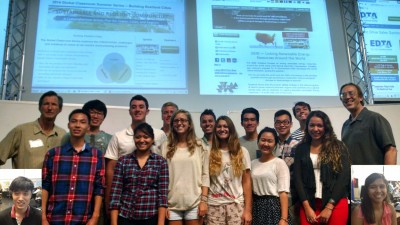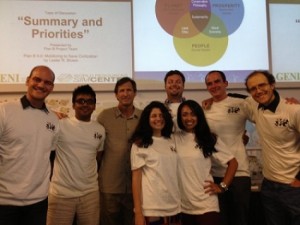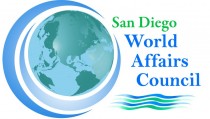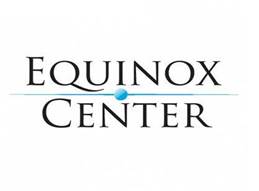2015 Global Classroom Summer Series — Geodesign

|
||||||||||||||
|
|
Geodesign* — Engineering the Transition to Renewable Energy and Clean Water for All
The Global Classroom Series explores the critical trends, challenges, and solutions to some of our world's most pressing problems.
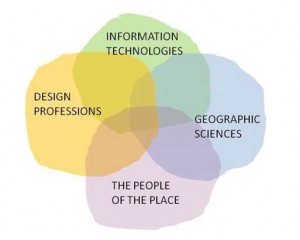 |
| Carl Steinitz, "A Framework for Geodesign" |
The GENI Summer Series tackles the challenges of our times. Sustainability means we plan a future that meets today's needs and the needs for generations to follow. Resiliency means we must plan to adapt and mitigate the consequences of climate change.
Geodesign will build on these two concepts and ask: How do we transition an energy system for nations and cities, to be 100% renewable, reliable 24/7 and is cost-competitive? How can we supply clean water to all?
Why is this needed? Our world will grow from 7.2 billion to 10 billion people in the next few decades. Most of them will live in growing cities. Demands for all resources will increase: especially food, clean water, and natural resources. Climate change from our fossil fuel use is causing severe consequences: stronger storms, extended droughts, disease migration, and sea-level rise. If trends continue, the predictions are dire for all nations.
 This summer series will identify clean energy solutions that already are proven and determine an ideal condition: 100% renewable energy to meet all-electric and transportation needs. Alternative strategies will be evaluated, maps developed and roadmaps created for policy-makers and energy officials to consider. Finally, we will push these solutions to several key countries and major cities to begin the process.
This summer series will identify clean energy solutions that already are proven and determine an ideal condition: 100% renewable energy to meet all-electric and transportation needs. Alternative strategies will be evaluated, maps developed and roadmaps created for policy-makers and energy officials to consider. Finally, we will push these solutions to several key countries and major cities to begin the process.
*Geodesign - a set of techniques and enabling technologies for planning built and natural environments in an integrated process, including project conceptualization, analysis, design specification, stakeholder participation and collaboration, design creation, simulation, and evaluation.
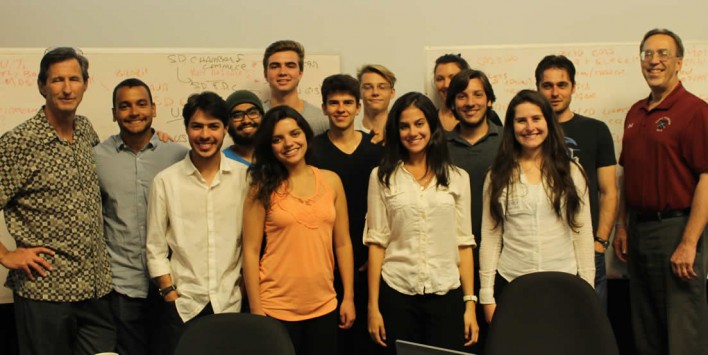
Global Classroom - 2015 Summer Series: "Geodesign"
Global Classroom - 2014 Summer Series: "Resilient Cities"
2013 Summer Series: "Plan B"
Geodesign Topics Covered:
- Why we need to plan comprehensively - Global issues are affecting local communities everywhere.
- What are the key drivers - Climate change, population growth, energy and water demand are all increasing.
- What are the desirable conditions for sustainable development, and why resiliency planning is now required
- How do we analyze these issues in an interconnected world - there are no silos, everything is connected to everything.
- Planning for the future – comprehensive anticipatory design science.
- Visualizing current and future options - using Geographic Information Systems (GIS) to understanding our geography, demographics and impacts.
- Plans and strategies for a sustainable national economy - providing clean energy and water for everyone.
The World Resources Simulation Center (or SIMCenter) is a unique learning and training facility in San Diego, CA. It’s been called the best new, high-tech meeting facility in Southern California. In our 12 screen surround environment, students are immersed in past trends and future options, to make more informed choices, quicker.
Hosted By:
Sponsored by:

Partners:



